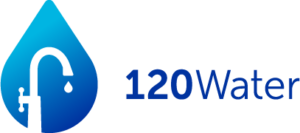The new holy grail for tech hubs: Talent
Indiana tech leaders agree that tech talent is the new holy grail for communities hoping to become or remain tech hubs. At the annual Indianapolis Business Journal Tech Power Breakfast, a panel of five tech company executives and TechPoint CEO Mike Langellier laid out several ways Indiana can win the global race for talent, including:
- Tax breaks or other incentives to lure remote workers or new workers to relocate to Indiana
- Flexible workplaces that “meet people where they are”
- New pathways, including apprenticeships, to get young people and career changers interested and set for success in tech
- More company investment in talent development
- More civic-corporate collaboration on talent development
- Competitive and updated benefit packages
Nearly 60 percent of U.S. workers who say their jobs can be done from home are working from home all or most of the time out of choice rather than necessity, according to a January Pew Research Center report that surveyed about 10,000 Americans. Sixty-four percent of those who are working from home at least some of the time—who rarely did so before the pandemic—say it’s easier now to balance work with their personal life. The Pew Research also notes a significant increase in the percentage of people who are working remotely because they relocated away from the area where they work (17 percent compared to 9 percent in 2020).
The job market in general favors workers, but tech workers are in an even better position as estimates of the unemployment rates for tech workers are about 1.7 percent, compared with roughly 4 percent in the general economy; and for those with expertise in cybersecurity, it’s more like 0.2 percent. Recruiters told the New York Times recently that tech employees are in such high demand they are tired of being head-hunted.
How Indiana can win the race for talent
All of that could be good news for Indiana and the Indianapolis metropolitan area—a mid-sized city acknowledged as a legit tech hub—if policy makers make talent recruitment a priority and the tech community pulls together, Langellier said.
“If Indiana can win in attracting and developing talent, it’s game over: we win,” Langellier said.
Bill Soards, president of AT&T Indiana, agreed but warned that mindset shifts can be hard to achieve.
Traditionally, states have lured companies with tax incentives and help with infrastructure, believing jobs would come with the physical presence of a company on their soil. Remote work has changed that equation and now policy makers need to adapt their approach to focus on the workers rather than the companies. Citing the Pew study, Langellier said almost one in six remote workers no longer live near their workplace, which is double what it was pre-pandemic. Workers are choosing where they want to live first and then finding jobs that suit them, whether it’s in an office or remote.
Specifically, the study said, “ A smaller but growing share of workers (17 percent) say relocation to an area away from their workplace, either permanently or temporarily, is a major reason why they are working from home. An additional 8 percent say this is a minor reason they are working from home.”
The Indiana General Assembly is currently considering legislation, which is strongly supported by the tech community, that would enable the state to offer tax incentives to tech workers. The Indiana Technology & Innovation Association expects two bills to emerge from the House Ways & Means Committee next week.
Among other provisions, Senate Bill 361 requires the Indiana Destination Development Corporation (IDDC) to design and implement a new remote worker grant program to provide grants to new remote workers for certain qualifying expenses including:
- Relocation to Indiana
- Computer hardware or software
- Access to broadband internet
- Membership to a coworking space or similar program.
The grant would not exceed $5,000 per year, per worker and $15,000 total.
Senate Bill 4 authorizes local governments to establish a Workforce Retention and Recruitment Program and Fund for the purposes of recruiting and retaining individuals who will satisfy current and future workforce needs, including providing incentives in the form of grants or loans to workers who re-locate, work remotely, recent grads etc. A youth apprenticeship bill supported by the ITIA appears not to be advancing this year.
Langellier said incentives aren’t enough. Companies’ investment in talent development has been declining for a while. “That has to change,” he said. “Something’s got to give.”
How Indiana can lose the race for talent
Indiana won’t win the talent quest if its only focus is on attracting talent to the state, said Al Eisaian, founder and former CEO of INtelinair, who moved his California-founded ag-tech company to Indiana in August 2021 and closed on a $20 million Series B funding round in September.
“We have to offer additional on-ramps otherwise we’re just constantly stealing people from each other,” he said, advocating apprenticeship programs and other initiatives aimed at encouraging young people to go into tech careers.
Eisaian credited Indiana’s business-friendly climate and welcoming people for his company relocation and said Indiana should be a “net-gainer” when it comes to remote workers because of those two factors alone.
Joanna Milliken, CEO at Emarsys, a global marketing technology company whose North American headquarters is in Indianapolis, like other panelists, made light of competing with her peers for talent, but said it is a serious challenge.
Emarsys (up for a 2022 Mira Award for Tech Product of the Year) has a flexible work policy and when recruiting, she says they tell prospects they can have in-office, remote or a hybrid work style.
She recently lured two workers to Indiana from the United Kingdom and encouraged others to do the same. “That’s just onesies or twosies, but can be the start of a trend,” she said.
Panelist Megan Glover, CEO and co-founder of 120Water has grown her Zionsville water quality testing company from a handful of employees to 75 but says recruiting those workers takes far longer than she had expected. Winning them requires companies “to meet people where they are” and offer flexibility and benefits that didn’t used to be needed.
Darrian Mikell, CEO and co-founder of Qualifi, which helps companies screen job applicants, sees the talent quest from both sides. He agreed that successful recruitment must include work-life balance options. He said options like four-day work weeks are something companies should consider. Mikell is up for four Mira Awards this spring: Tech Product of the Year, Rising Entrepreneur, Exceptional Employer and Talent Impact.
Can Indiana maintain its record tech investment?
The panelists also discussed whether Indiana could maintain its record-breaking momentum for tech investment. Indiana tech companies ended 2021 by collecting more than $958 million and fifty-seven Hoosier tech companies were involved in M&A activity last year.
To put that in perspective, the prior record, set in 2019, was $358 million.
“I hope the market stays hot,” Qualifi’s Mikell said, alluding to how difficult it had been for him in his early days to prove to potential investors that his company was a good bet.
He said it took a couple years of effort to earn his first investment but only months for the raise he announced last week: $2.5 million in seed financing to support the company’s additional growth.
Remote work and the tight labor market has made human resources tech more attractive to investors, he said, but he credited his pre-seed investment experience and connections for his most recent success. Referencing the difficulty he had in the beginning, he said he was glad to see accelerator groups growing in Indiana and focusing on early stage companies.
In a video interview with IBJ tech reporter Susan Orr, he outlined three key things for other entrepreneurs to focus on before beginning to search for investors:
- Treat fundraising like sales: Develop a targeted list of potential investors to approach
- Have a focused pitch: Know clearly what your business offers and present it in the best light possible
- Angel power: Seek angel investors who give you instant credibility and will help introduce you to other potential investors
Langellier said he’d like to see more tangible tools for Indiana tech at all levels and would like to see more private equity groups supporting Indiana scale-up companies in order to create more Indiana tech companies to be the acquirer instead of the acquiree.
Glover’s 120Water falls into the scale-up category. Founded in 2016, the company that helps organizations test water quality, now serves clients across the country. It has an enviable fundraising track record, starting in 2018 when the company took home the $100,000 prize from the Rise of the Rest pitch competition in Indianapolis which led to a $2 million seed round followed by a $7 million round in 2019 and another $4.5 million in March 2021.
The company was one of FastCompany’s most innovative companies for pursuing social good in 2020 and Glover was the Indiana Chamber’s 2021 Dynamic Leader of the Year.
Glover said investors often think of Indiana tech as a collection of startups. She also advocated for more support for scale-up level companies.
But, she cautioned, “The talent issue has to get solved” to maintain investment momentum.






